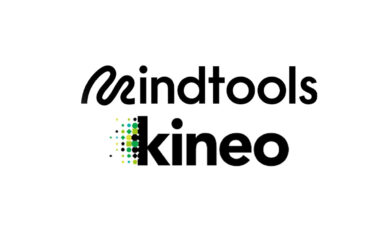“Leadership is a series of behaviors, rather than a role for heroes.”
– Margaret (Meg) Wheatley, American Management Consultant
It’s Monday morning. Everything is silent, but for the snippets of birdsong that wander in through the open window. It feels weird, because even small towns like the one I live in have traffic on Friday afternoons and Monday mornings. But today there’s no traffic. Nothing.
Half the world has closed down. And we’re part of that half.
The Lucky Ones…
For some of us, like me, it’s normal to be at home during the day because I mostly work from home anyway. I get up in the morning, shower, get dressed, and go to another room in my house, work and earn money – it’s my routine.
Other people have been hastily equipped and sent home by their employers to work. They’ve had to learn how to be at home and function as if they’re at the office. But they’re lucky: they still have jobs and income.
Then there are the business owners who are stuck at home unable to work, but who are lucky enough to have savings that will pull them through the lockdown. Some of them are even able to pay their employees. Others will get paid through the government’s unemployment fund.
…And the Unlucky Ones
In a developing country like South Africa, where I live, there are millions and millions of unlucky people. These are the people who work at menial jobs day in and day out, rely on social grants, or trade informally.
Many of them have no income and no way to make money. The informal traders are allowed to sell their goods, but they depend on people walking or driving past their stands. Now that everyone’s at home, there’s no one to buy their products.
Many people had hardly any food to begin with, but as the days progress their plight is getting worse and their situation is becoming desperate. By the beginning of the second week, the ugly reality of lockdown in a country like mine finally hit. People are beginning to starve.
When the lockdown was announced, our government promised food aid and other relief to people in distress. But, organizing and distributing food parcels and basic goods to millions and millions of people has been more difficult than was first thought. So the pressure has really ramped up for private organizations and individuals to lend a helping hand.
Stepping Up to Make a Difference
Three weeks ago, I saw a message on our town’s Facebook group. It was from Chuck, a small business owner stuck at home. He said he was becoming aware of more and more people pleading for food on public platforms, including social media, and that he wanted to help. Who would join him?
I’m sure that up till then, many people in our small community had probably thought of helping. I’m also sure that many of them in their private capacity had helped one or two families with food.
But it took someone like Chuck, who had the courage to act, to stand up and make a difference.
Becoming a Leader When Not in Charge
Chuck is not in politics and he is in no way involved in the running of the town. Previously he wasn’t even a well-known or influential person.
Initially, his project got off to a slow start with only a few of us involved. But that didn’t discourage Chuck. He worked with the few people who had volunteered to help and did what he could. As the days went by the project gained traction. More and more people were asking for help. Luckily the number of volunteers and donations was also growing.
As of this morning, Chuck and his army of volunteers have – in the space of three short weeks – delivered thousands of food parcels big enough to feed a household for two weeks.
What Makes a Leader?
In Chuck’s case, I believe his willingness to serve gave him the courage to act. This, combined with his compassion for his fellow citizens and his vision of helping people in an organized way, spurred on others to follow him. His passion also motivated businesses and individuals to chip in with money, time, vehicles, protective gear for volunteers, and sanitizing equipment.
When we’re all tired and emotional – feeling that we can’t possibly take one more call from a mother crying for baby formula or a pensioner desperate for a piece of bread – Chuck’s enthusiasm and energy carries us through.
A Leader and a Hero
Remarkably, Chuck has not once taken any credit for the project that he started. When people thank him, he immediately says it’s because of the volunteers and that none of the relief work would have been possible without them.
He is at the coalface every day, and his “pleases” and “thank yous” never dry up. Not once has he become impatient or frustrated, although there’ve been plenty of opportunities to do so.
Chuck wasn’t looking to be a hero. But when no one else was able to, or didn’t know how to, he was the one who stepped up to be a leader. Despite not being in charge of an official aid agency and not knowing a thing about grocery logistics (according to his wife), his project is a success! And it is making a real difference, alleviating the suffering of many thousands of people.
How to Be a Leader When You’re Not in Charge – Tweet Chat Roundup
During our #MTtalk Twitter chat last Friday, we talked about how to be a leader when you’re not in charge. Here are the questions we asked and some of your most insightful responses:
Q1. How is it possible to lead when you’re not in charge? Who’s going to follow you?
@JKatzaman There is assigned and earned leadership. Assigned leaders don’t automatically have the skills. Those not assigned earn the respect and followership of others based on their performance and results.
@Midgie_MT I see it as taking initiative and making a suggestion of some sort of action. Plus, being considerate of others rather than bossy and telling people what to do.
Q2. What would motivate you to lead without being in charge?
@IamMuchiraGM If something is not being done as it should, I’d take charge and lead.
@Ganesh_Sabari The passion and urge to achieve perfection; sustained by the recognition of the achieved perfection.
Q3. What are some examples of where people could lead without being in charge?
@carriemaslen Simple ways to lead without being in charge: when you see something that needs to be addressed, do it; be a voice of reason and calm; be kind.
@SizweMoyo Share information freely, that’s it. Your former struggle is still someone’s struggle today, help them find their way.
Q4. Are some people more likely to take the lead than others? Does this matter? Why?
@MicheleDD_MT Some people do like to lead more than others. Could be a career goal (move up), they truly like to lead or it’s part of their personality/makeup.
@harrisonia Yes, people who really embrace the mission are likely to take [the] lead sooner than others. But, we can’t forget that there are people who seek power and they will take opportunities that come their way.
Q5. In what situations have you taken the lead through your own initiative?
@Dwyka_Consult Sometimes, being a leader also means taking a step back and giving someone else the opportunity to lead and learn. You’re there and can help if necessary, but you can be a “silent backbone” too.
@YEPBusiness I was an official and unofficial crisis consultant for years professionally. But I’ve also been on the scene for some rapid chaos fixing over the years. I’ve also worked disasters and organically ended up leading/developing programs. I’m probably alpha bossy.
Q6. What makes it difficult to lead when you’re not in charge?
@PG_pmp When people only want to work due to position or designation of a person.
@TheCraigKaye It depends on [the] project: if it’s a legal one, jurisdiction may be an issue. There are also points of sign off and financial barriers. What we can bring is skill, creativity and enthusiasm to inspire those around us.
Q7. How can you increase your influence without having authority?
@ShajoeHR By standing up for the right things in [the] right way.
@CoachHollyW By meeting people where they are, seeking to understand, and making sure their needs are being met.
Q8. How might you handle a situation if you are challenged by a colleague about taking the lead?
@IamMuchiraGM Step aside to avoid conflict. Leadership is not about who has authority or whoever takes [the] lead but rather about who has influence.
@PmTwee Simply step away from the competition. When working for a common goal it is not correct to be racing. Encourage him, but don’t forget to remind him when he goes wrong.
Q9. You gain a new manager who doesn’t know about your informal leadership role – what do you do?
@Yolande_MT It’s the ideal opportunity to truly be a servant leader. Be mindful.
@JKatzaman When getting acquainted with new managers, recap what you do, especially other duties as assigned or not. They can be agreeable or tell you to stay in your own lane, which might include updating your résumé.
Q10. What would you do differently next time you have the opportunity to lead when you’re not in charge?
@lg217 Let my instincts and good judgment help me make the best decisions possible, and to remember that there will be disagreement. And those who don’t approve of my decisions, sit down and talk with them and see why they do not agree with my choices and go from there.
@iqurattariq I will see if anyone else can take it up instead. If yes, I will do all I can to motivate them to step up, no pressure though. For you, the second time might be the same, but for someone else it might be the chance they have been waiting for.
To read all the tweets, have a look at the Wakelet collection of this chat, here.
Coming Up
Being a good leader isn’t always about having loads of followers. It’s also about helping others to grow, and allowing them to use their talents.
In an organization the onboarding process is the first step to help people to reach their potential. So, in this week’s poll, we’d like to know which onboarding issues you’ve experienced? To cast your vote click here.
Resources
In the meantime, here are some resources relating to the topic we discussed:
How Strong Are Your Influencing Skills?
The Four Factor Theory of Leadership
Blanchard’s ABCD Model of Trust
French and Raven’s Five Forms of Power




